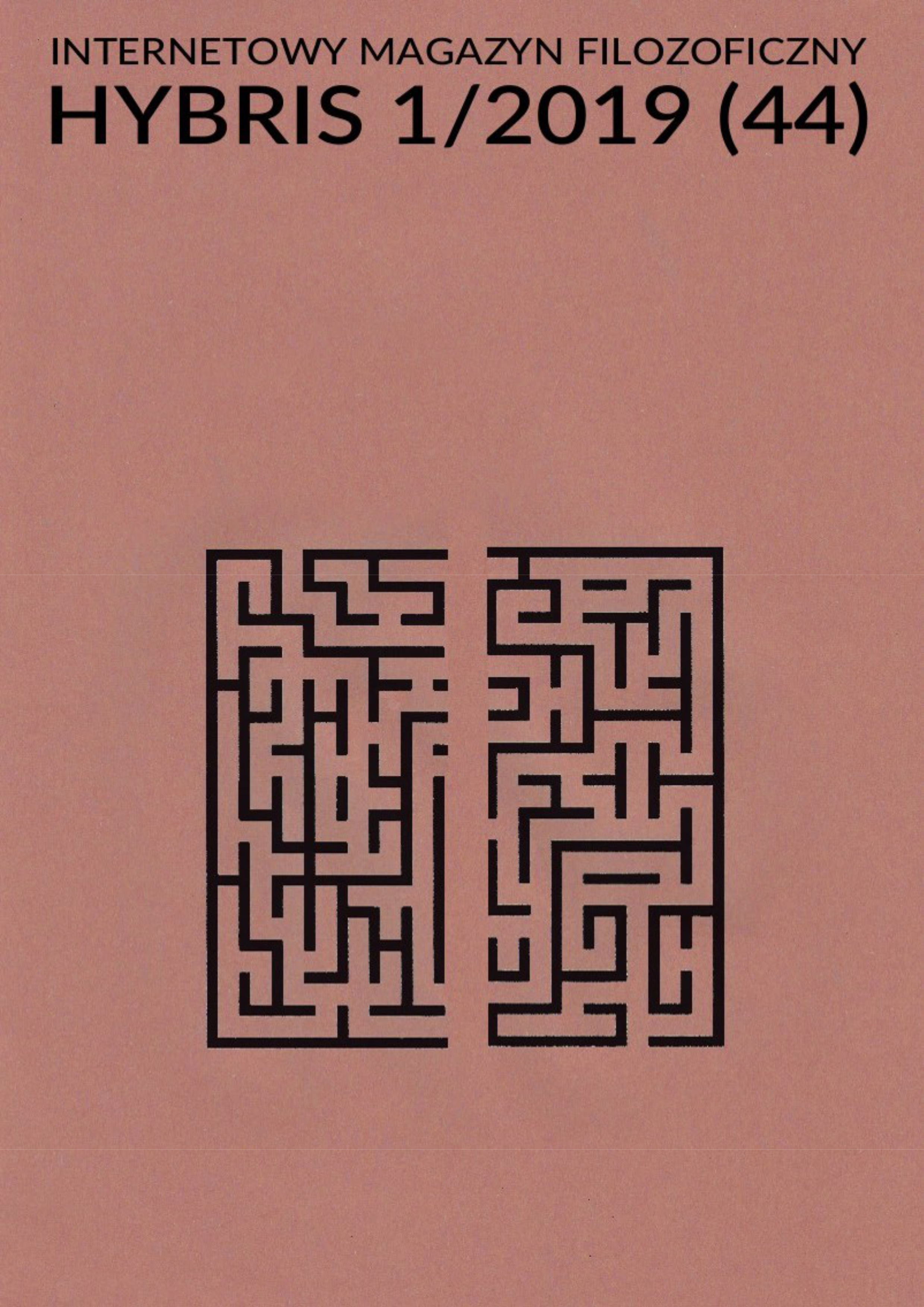A way of looking at the past as a light for μελέτη θανάτου. A sketch with reference to the thought of Parmenides of Elea (B3)
DOI:
https://doi.org/10.18778/1689-4286.44.08Keywords:
past, death, existence, μελέτη θανάτου, ἄσκησιςAbstract
The aim of my article is to present some reflections on the connection between the way of existence of the past (as we are entitled to see it) and our approach to dying and death. The basis of my reflections is a certain view of Plato’s words „μελέτη θανάτου” (Phaedo, 81 a) in combination with Parmenidean „τὸ γὰρ αὐτὸ νοεῖν ἐστίν τε καὶ εἶναι” (Περί φύσεως, B3), which seems to be permissible and intelectually beneficial result of looking at these parts of their works in the light of ἄσκησις: philosophy understood as an art of wise living and dying. One of the most important messages of ancient philosophy is probably the notion that what can be thought, has to exist. If so—as thinking (remembering) about the past is more reliable than about the future—the past and the future must have different ontic status. Considering, e.g., C. D. Broad’s growing universe theory, it may be acceptable to recognize someone’s death as another layer of his existence, which does not destroy the previous layers. It allows to change a view of, firstly, future or actual absence of deceased person, secondly — inevitable coming of (to) death.
References
Abramowiczówna, Z. (1962). Słownik grecko-polski, t. 3. Warszawa: PWN.
View in Google Scholar
Albert, K. (1991). O Platońskim pojęciu filozofii. Warszawa: IFiS PAN.
View in Google Scholar
Arystoteles (2003). O powstawaniu i niszczeniu (tłum. L. Regner). W: Arystoteles, Dzieła wszystkie, t. 2 (ss. 340–424). Warszawa: PWN.
View in Google Scholar
Broad, C. D. (1923). Scientific Thought. London: Kregan Paul, Trench, Trubner & Co., Ltd.
View in Google Scholar
Colli, G. (1992). Narodziny filozofii. Warszawa – Kraków: Res Publica & Oficyna Literacka.
View in Google Scholar
Domański, J. (1996). Metamorfozy pojęcia filozofii. Warszawa: IFiS PAN.
View in Google Scholar
Hadot, P. (2003). Filozofia jako ćwiczenie duchowe. Warszawa: Aletheia.
View in Google Scholar
Heidegger, M. (2007). Bycie i czas. Warszawa: PWN.
View in Google Scholar
Homer. Iliada. Za: http://www.perseus.tufts.edu. (dostęp: 23 lutego 2019 r.).
View in Google Scholar
Jaeger, W. (2001). Paideia. Formowanie człowieka greckiego. Warszawa: Fundacja Aletheia.
View in Google Scholar
Jonas, H. (1993). Zmiana i trwałość. O podstawach rozumienia przeszłości. Warszawa: IFiS PAN.
View in Google Scholar
Jurewicz, O. (2015). Słownik grecko-polski. Warszawa: Sub Lupa.
View in Google Scholar
Kirk, G. S., Raven, J. E. (1971). The Presocratic Philosophers. A Critical History with a Selection of Texts. Cambridge: University Press.
View in Google Scholar
Kubok, D. (2004). Prawda i mniemania. Studium filozofii Parmenidesa z Elei. Katowice: wyd. UŚ.
View in Google Scholar
Liddell, H. G., Scott, R. (1883). A Greek-English Lexicon, Seventh Edition. New York: Harper & Brothers, Franklin Square.
View in Google Scholar
Lutosławski, W. (2004). Metafizyka. Drozdowo: Muzeum Przyrody w Drozdowie.
View in Google Scholar
Mrówka, K. (2012). Parmenides. Ścieżka prawdy. Warszawa: PWN.
View in Google Scholar
Platon (2017). Φαίδων/Fedon (tłum. R. Legutko). Kraków – Warszawa: Ośrodek Myśli Politycznej, PIW, Teologia Polityczna.
View in Google Scholar
Platon (1999). Fedon (tłum. W. Witwicki). W: Platon, Dialogi, t. I (ss. 611–714). Kęty: Antyk.
View in Google Scholar
Platon (1999). Sofista (tłum. W. Witwicki). W: Platon, Dialogi, t. II (ss. 431–500). Kęty: Antyk. (Wersja gr. za: http://www.perseus.tufts.edu. (dostęp: 23 lutego 2019 r.)).
View in Google Scholar
Platon (1999). Teajtet (tłum. W. Witwicki). W: Platon, Dialogi, t. II (ss. 323–430). Kęty: Antyk. (Wersja gr. za: http://www.perseus.tufts.edu. (dostęp: 23 lutego 2019 r.)).
View in Google Scholar
Popper, K. (2006). Czy księżyc może rzucić światło na drogi Parmenidesa? Studia
View in Google Scholar
Philosophica Wratislaviensa, vol. I, fasc. 1, ss. 161–168.
View in Google Scholar
Severino, E. (2005). Powrót do Parmenidesa. Warszawa: IFiS PAN.
View in Google Scholar
Tatarkiewicz, W. (1981). Historia filozofii, t. 1: Filozofia starożytna i średniowieczna. Warszawa: PWN.
View in Google Scholar
Tischner, J. (2012). Filozofia dramatu. Kraków: Znak.
View in Google Scholar
Wandowicz, M. (2018). Hermeneutyka i ἄσκησις. O żywotności Platońskiej μελέτης θανάτου. Przestrzenie Teorii, 30 (2018), ss. 277–288.
View in Google Scholar
DOI: https://doi.org/10.14746/pt.2018.30.14
Wesoły, M. (1992). Parmenides — «czcigodny i straszny zarazem». W: G. Kotlarski, R. Kozłowski (red.), Człowiek i społeczeństwo w refleksji filozoficznej (ss. 225–237). Poznań: Wydawnictwo Naukowe UAM.
View in Google Scholar
Wesoły, M. (2001). Parmenides z Elei — physikos. Przegląd Filozoficzny, 2 (2001), ss. 59–85.
View in Google Scholar
Downloads
Published
How to Cite
Issue
Section
License

This work is licensed under a Creative Commons Attribution-NonCommercial-NoDerivatives 4.0 International License.






